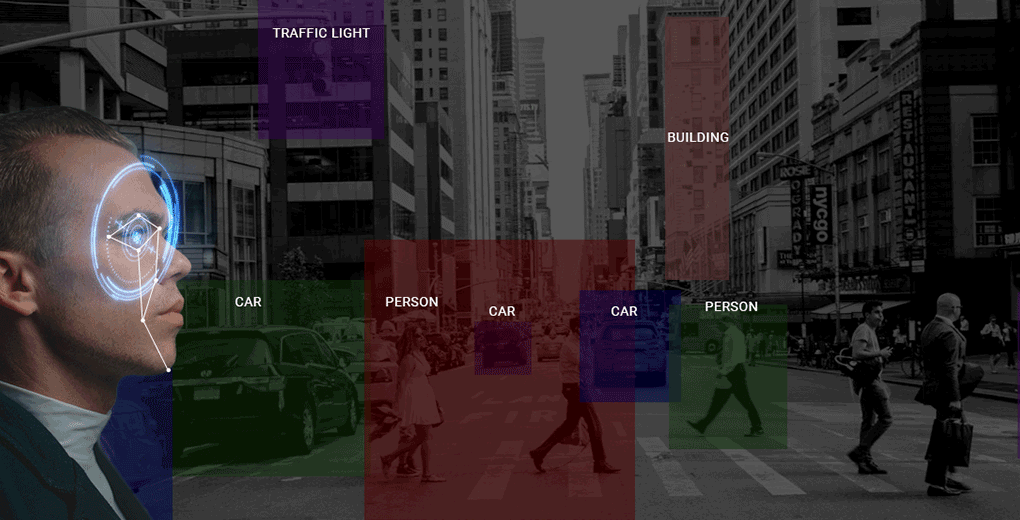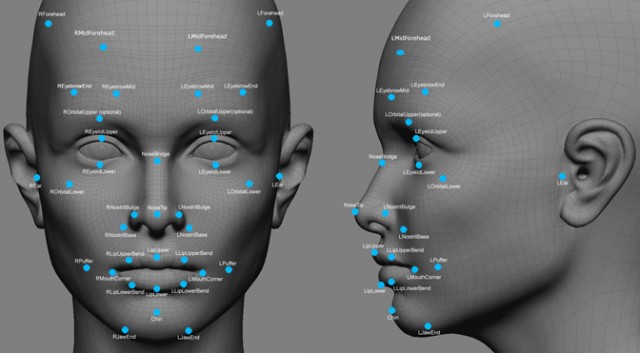Facial Recognition Software - Increased Security at the Cost of Privacy
What is Facial Recognition Technology?
Facial recognition is a type of computer vision that is used to identify an individual's face by determining their facial signature. Computer Vision is a field of AI that teaches computers how to identify, interpret, and understand objects in the visual world. Using digital versions of pictures or video (combined with deep learning models), computers learn to accurately identify and classify objects - such as faces.
Facial recognition uses other computer vision parts in order to identify individual faces from a digital image. Image segmentation, object detection, edge detection, pattern detection, image classification, and feature matching are all used in order to identify a human face in a series of pixels.
Computer Vision technology has actually been around since the 1950's, but its use was minimal at the time. Plus, it could only identify a couple objects - squares and circles. Now that our AI and neural networks have improved significantly, the application of facial recognition technology is now possible.

Source: Analytics Vidhya
Determining your Facial Signature
Facial recognition is made possible through the use of computer vision and bio-metrics. Just as humans identify one another through facial structure and features, the technology behind facial recognition works the same way. It will identify you through several key factors, most notably through the distance between your eyes and the distance from forehead to chin. It also uses image segmentation and object detection to identify a human face in a picture. Once that face is identified, the facial structure is measured and calculated to determine your 'facial signature'.

Source:
Facebook
Benefits of Facial Recognition Technology
- Increased Security: At airports across the United States, the government now uses facial recognition software to detect threats and to find persons of interest.
- Social Apps: Facebook, Google Photos, Instagram, and countless other applications use facial recognition software to instantly recognize and tag the people in your photos. Google Photos now instantly creates an album called "me" that puts every picture with your facial signature inside.
- Passwords: Apple has been using facial recognition technology as a way for iPhone users to be identified without a numeric password. This isn't a perfect system, as many users have complained, but it can be used to simplify trying to prove who you are. Now, all you need is your face to unlock your phone, unlock your Playstation, and soon to get into Major League Baseball games.
- Find Missing Persons: Law enforcement and even non-profits are using this technology to find missing persons. FaceFirst is a company that provides this technology for free to non-profits that use it specifically to find missing children and victims of human trafficking.
Cons of Facial Recognition Technology
- Government Tracking: The US government already has a large database of 'facial signatures' that can be tracked in real-time. If the government has your signature, they can track you anywhere, as long as one of their cameras can recognize your face. According to NBC News, "Maryland's system was used to identify the suspect who allegedly massacred journalists at the Capital Gazette newspaper in Annapolis and to monitor protesters following the 2015 death of Freddie Gray in Baltimore." Also, China is using Facial Recognition Technology to pick suspects out of a crowd.
- Increased Exposure: The best example of this would be how it was used during the Charlottesville protests. Many of the participants were exposed for their participation in a "Unite the Right" event which was both violent and deadly. This event had severe political and racial undertones in which the participants were on camera using foul and anti-semitic language. Twitter users used facial recognition software to oust these protestors and they were publicly shamed. There was such a large outcry and many participants lost their jobs after being exposed.
- Mistaken Identities: Facial Recognition software is far from perfect. An MIT study found that facial recognition algorithms developed by Microsoft, IBM and China-based Face++ failed to identify black women far more frequently than white men. Also, in 2019, a an 18-year-old from New York has filed a $1 billion lawsuit against Apple over a false arrest he says happened because of what he believes to be Apple's face recognition system. NYPD officers arrested him on after he was falsely linked to a series of Apple Store thefts in Boston, New Jersey, Delaware and Manhattan.
- Other Ethical Issues: Many of the privacy advocacy groups are up-in-arms about companies and government entities using this software to track and identify citizens. Retail companies are using this software to determine race and gender and shopping/buying habits. At the core, it is an intrusion into our identities that they are taking without consent. There are very little regulations and restrictions on who can use this software and in which ways, which is causing alarm for many people opting for privacy.
Ongoing Debate about Facial Recognition Technology
In March 2019, the first type of FR Technology regulations were introduced by the US Senate. This new bill would prohibit commercial companies using facial recognition technology from collecting or sharing people's data without their explicit consent.
The bipartisan Commercial Facial Recognition Privacy Act is sponsored by Senators Brian Schatz (D-HI) and Roy Blunt (R-MO). Under the bill, users would have to be notified when their Facial Signatures are being used or collected. According to the lawmakers, it also would require third-party testing before the tech could be introduced into the market to ensure it is unbiased and doesn't harm consumers.
There is also a great debate about how the government will use this data. This technology has been proven to be biased and only partially accurate which is causing many people a fear of being misidentified or used to target minorities. Axon, the country's largest supplier of body cameras, has created ethics boards to decide whether or not to outfit their cameras with FR technology. This could potentially allow police bodycams to identify people in real-time. While some have said that this would be beneficial in protecting society, others have argued that the inaccuracies and bias of the technology could cause the wrong people to be identified and targeted. Since there are little federal guidelines on how the state, local, and federal government can use this data, the debate will continue at least until there is some authentic transparency.
References
- https://www.theverge.com/2019/3/14/18266249/facial-recognition-bill-data-share-consent-senate-commercial-facial-recognition-privacy-act
- https://www.nbcnews.com/news/us-news/facial-recognition-gives-police-powerful-new-tracking-tool-it-s-n894936
- https://www.engadget.com/2019/04/23/apple-facial-recognition-false-arrest-lawsuit/


